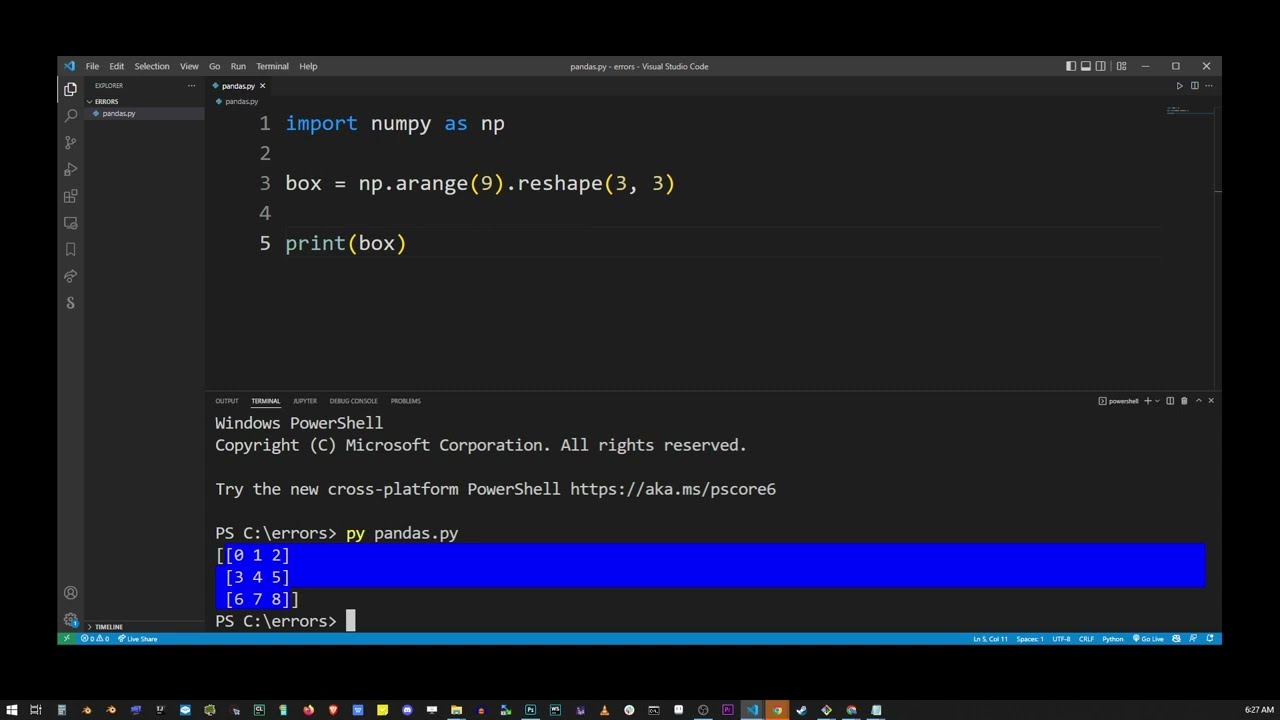How to solve ModuleNotFoundError: No module named ‘murmurhash’ in python

Understanding the ‘ModuleNotFoundError’ in Python
It is not uncommon for Python developers to encounter the error message stating, ‘ModuleNotFoundError: No module named ‘murmurhash’. This issue typically arises when Python cannot find the specified module, which in this case is ‘murmurhash’. This error can be frustrating, especially when working on critical projects. However, understanding the root cause of this error is essential in order to effectively troubleshoot and resolve it.
What is Murmurhash?
Murmurhash is a non-cryptographic hash function popular for its speed and efficiency in generating hash values. It is widely used in various applications such as database indexing, hash tables, and data integrity verification.
How to Solve the ModuleNotFoundError: No module named ‘murmurhash’
When encountering the error stating that there is no module named ‘murmurhash’, there are several steps you can take to address the issue. Below are the recommended solutions to effectively resolve this error:
1. Install the murmurhash Module
The first step to fixing this error is to ensure that the murmurhash module is properly installed in your Python environment. You can install it using either pip or conda, depending on your preference and the environment you are using. Here are the commands for both:
- Using pip:
- pip install murmurhash
- Using conda:
- conda install -c conda-forge murmurhash
After running the appropriate command, try rerunning your Python script that called for the murmurhash module. If the installation was successful, the error should no longer appear.
2. Verify Your Python Environment
It’s vital to ensure that you are working within the correct Python environment. Sometimes the error occurs because the module is not installed in the environment you are currently using. You can check your current Python environment with the following command:
- which python (Linux/Mac)
- where python (Windows)
Make sure to check which environment you are in and ensure murmurhash is installed there. You can also create a virtual environment to manage your dependencies more effectively using:
- python -m venv myenv
- source myenv/bin/activate (Linux/Mac)
- myenvScriptsactivate (Windows)
Common Causes of ModuleNotFoundError for murmurhash
Understanding the reasons behind the error can help you troubleshoot it more effectively. Here are some common scenarios that can lead to a ModuleNotFoundError for murmurhash:
1. Missing Dependencies
One significant reason for encountering this error is the absence of dependencies required by different packages that utilize murmurhash. If a package relies on murmurhash but it has not been installed, your program will throw an error. To handle this, ensure all dependencies are installed by reviewing the documentation of the package you are using.
2. Version Compatibility Issues
Sometimes the ModuleNotFoundError arises due to version compatibility issues. If you have multiple versions of a library installed, you may have installed murmurhash in one version but are executing a script that requires it in another. Use the following command to check installed versions:
- pip list
- conda list
It’s essential to ensure that your packages are compatible with your Python version as well.
3. Incorrect Import Statement
Another common cause of the ModuleNotFoundError is an incorrect import statement. Ensure that you are using the correct syntax to import murmurhash. The import statement should look like:
import murmurhash
Any deviation from this structure can result in an erroneous message being displayed.
Best Practices for Managing Python Packages
To prevent the ModuleNotFoundError from occurring in the future, consider implementing the following best practices when managing Python packages:
1. Maintain a Requirements File
Using a requirements.txt file can help you keep track of all the packages you need for your project. Each time you install a package, add it to the requirements file. This allows you to easily reinstall all packages with their specific versions by running:
pip install -r requirements.txt
2. Use Virtual Environments
To avoid conflicts between packages and manage dependencies effectively, consistently use virtual environments. This practice isolates your project’s dependencies, ensuring you won’t run into issues when switching between projects. You can create new environments easily, as discussed earlier.
3. Regularly Update Packages
Keeping your Python packages up to date is crucial for ensuring compatibility and access to the latest features and bug fixes. Regularly update your packages using:
pip install –upgrade
This will help prevent the occurrence of errors like ModuleNotFoundError due to outdated modules.
4. Verify Package Installation
After installing new packages, it’s essential to verify that they are indeed available in your environment. You can import the module in a Python shell to check if it was installed correctly. If you encounter any issues, reassess the previous steps to make sure everything is in order.
Exploring Alternatives to Murmurhash
If you continue to face issues with murmurhash or determine that it does not suit your project’s needs, consider exploring alternative hashing libraries. These alternatives have their unique features and functionalities, which can cater to different project requirements. Here are a few options:
- hashlib: A built-in Python library that provides secure hash functions such as SHA-256 and MD5.
- xxhash: Known for its high speed and performance, xxhash is suitable for applications requiring fast hashing.
- CityHash: Developed by Google, CityHash is designed to provide fast and efficient hashing for strings and other data types.
Explore the documentation of each alternative to find which one meets your performance and project requirements the best.





